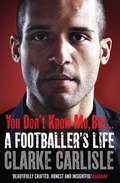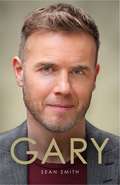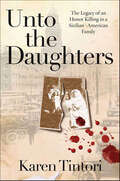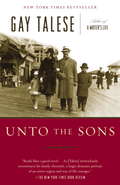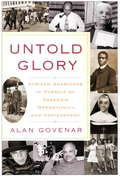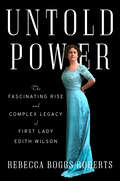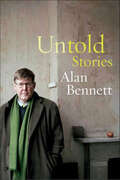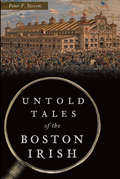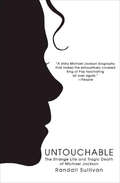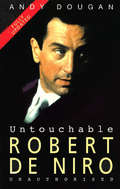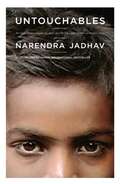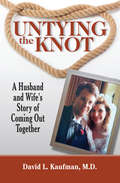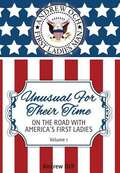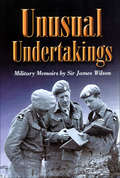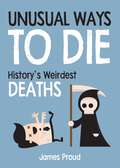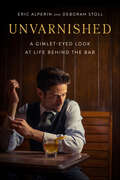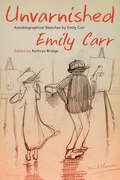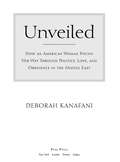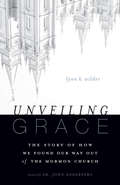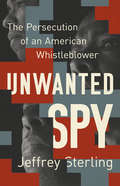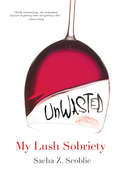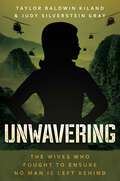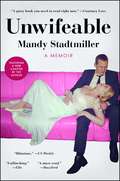- Table View
- List View
Untitled Clarke Carlisle
by Clarke CarlisleIn the summer of 2012, Clarke Carlisle, after 15 years as a professional footballer, was without a contract and wondering if he still had a future in the game. With a growing media profile, thanks to his appearances on Question Time and an acclaimed documentary on racism in football, there were plenty of other opportunities, but he was determined to give it another go. Initially signing for York City before moving to Northampton Town, Carlisle was soon back in the thick of the action. As the events of the year unfolded, Carlisle looked back at his career, from his early days playing for England Under-21s, through career-threatening injuries and a battle with alcohol problems, to a late arrival at the top level with Burnley. As chairman of the PFA, Carlisle is a much-respected figure in the game; his raw honesty and penetrating insights will make readers view the game, and those who play it, in a whole new light.
Untitled book 2
by Sean SmithTop celebrity biographer Sean Smith tells the story of national treasure Gary Barlow, one of the UK's greatest songwriters and musicians. Throughout a stellar career, nobody has been more misunderstood than Gary Barlow. When he first found fame, he was perceived as too arrogant. Then, after a spectacular slump and amazing recovery, he adopted a modesty that underrates his lifetime achievements. In this book Sean Smith redresses the balance by revealing the real man, the romances that shaped his life and the passion for music that drives him. A singer and virtuoso keyboard player who performed in working men's clubs from the age of thirteen, the young Gary Barlow had written more than a hundred songs while still at school. He would go on to achieve phenomenal success as the musical force behind Take That, the most popular boy band of all time. But an eagerly anticipated solo career flopped and Gary became depressed and overweight, while the triumphs of Robbie Williams were a constant reminder of his failure. In 2006 Take That returned bigger than ever and their huge success was followed by an emotional reunion between Gary and Robbie, that was cemented when they put aside past hurts to write and perform new songs together. Now recognized as one of the greatest songwriters and musicians the UK has ever produced, Gary is among the best-known faces on television, returning as head judge on the X Factor in 2013. Featuring original interviews with many people who have never spoken before, Gary is a celebration of a complex and unique talent.
Unto the Daughters: The Legacy of an Honor Killing in a Sicilian-American Family
by Karen TintoriKaren Tintori thought she knew her family tree.Her grandmother Josie had emigrated from Sicily with her parents at the turn of the century. They settled in Detroit, and with Josie's nine siblings, worked to create a home for themselves away from the poverty and servitude of the old country. Their descendants were proud Italian-Americans.But Josie had a sister nobody spoke of. Her name was Frances, and at age sixteen she fell in love with a young barber. Her father wanted her to marry an older don in the neighborhood mafia---a marriage that would give his sons a leg up in the mob. But Frances eloped with her barber, and when she returned home a married woman, her fate was sealed. Even eighty years and two generations later, Frances was not spoken of, and her memory was suppressed.Unto the Daughters is a historical mystery and family story that unwraps the many layers of family, honor, memory, and fear to find an honor killing in turn-of-the-century Detroit. Tracing the history and insular world of Italian immigrants back to the old country, Karen Tintori shows what they came from, what they hoped for, and how the hopes and dreams of America fell far short for her great-aunt Frances."Nearly every family has a skeleton in its closet, an ancestor who "sins" against custom and tradition and pays a double price -- ostracism or worse at the time, and obliteration from the memory of succeeding generations. Few of these transgressors paid a higher price than Frances Costa, who was brutally murdered by her own brothers in a 1919 Sicilian honor killing in Detroit. And fewer yet have had a more tenacious successor than Frances's great-niece, Karen Tintori, who refused to allow the truth to remain forgotten. This is a book for anyone who shares the convinction that all history, in the end, is family history." -Frank Viviano, author of Blood Washes Blood and Dispatches from the Pacific Century"Switching back and forth between rural Sicily and early 20th century Detroit, Unto the Daughters reads like a nonfiction version of the film Godfather II--if it had been told from the point of view of a female Corleone. In exploring her own family's secret history, Karen Tintori gives voice not just to her victimized aunt but to all Italian-American daughters and wives silenced by the power of omerta. Half gripping true-crime story, half moving family memoir, Unto the Daughters is both fascinating and frightening, packed with telling details and obscure folklore that help bring the suffocating world of a Mafia family to life." --Eleni N. Gage, author of North of Ithaka
Untold Glory: African Americans in Pursuit of Freedom, Opportunity, and Achievement
by Alan GovenarUntold Glory offers a fresh perspective on one of the most fundamental elements of American history--the conquest of new frontiers. In twenty-seven fascinating first-person accounts, African Americans from different eras, backgrounds, and occupations explore and reflect on the meaning of frontier, both literally and metaphorically. This collection chronicles the search for freedom and opportunity and the achievement of success in a wide variety of fields. The contributors all pushed beyond self-imposed or culturally enforced boundaries to pursue their dreams and ambitions. They include Mark Dean, an IBM vice president and member of the Inventors Hall of Fame, who holds three of the original patents upon which the personal computer is based; the civil-rights attorney Oliver W. Hill, one of the architects of the Brown v. Board of Education Supreme Court case; the classical pianist and museum founder Josephine Love; and L. Douglas Wilder, the grandson of slaves who became the first African American governor of Virginia. Featuring an incisive introduction by Alan Govenar, Untold Glory is both an important addition to the field of African American history and an engaging, eye-opening look at some of the nation's most daring, innovative, and influential pioneers.
Untold Power: The Fascinating Rise and Complex Legacy of First Lady Edith Wilson
by Rebecca Boggs RobertsA nuanced portrait of the first acting woman president, written with fresh and cinematic verve by a leading historian on women&’s suffrage and powerWhile this nation has yet to elect its first woman president—and though history has downplayed her role—just over a century ago a woman became the nation&’s first acting president. In fact, she was born in 1872, and her name was Edith Bolling Galt Wilson. She climbed her way out of Appalachian poverty and into the highest echelons of American power and in 1919 effectively acted as the first woman president of the U.S. (before women could even vote nationwide) when her husband, Woodrow Wilson, was incapacitated. Beautiful, brilliant, charismatic, catty, and calculating, she was a complicated figure whose personal quest for influence reshaped the position of First Lady into one of political prominence forever. And still nobody truly understands who she was.For the first time, we have a biography that takes an unflinching look at the woman whose ascent mirrors that of many powerful American women before and since, one full of the compromises and complicities women have undertaken throughout time in order to find security for themselves and make their mark on history. She was a shape-shifter who was obsessed with crafting her own reputation, at once deeply invested in exercising her own power while also opposing women&’s suffrage. With narrative verve and fresh eyes, Untold Power is a richly overdue examination of one of American history&’s most influential, complicated women as well as the surprising and often absurd realities of American politics.
Untold Stories
by Alan BennettUntold Stories brings together some of the finest and funniest writing by Alan Bennett, one of England's best-known literary figures."[Bennett] does what only the best writers can do—make us look at ourselves in a way we've never done before." —Michael PalinAlan Bennett's first major collection since Writing Home contains previously unpublished work—including the title piece, a poignant memoir of his family and of growing up in Leeds—along with his much celebrated diary for the years 1996 to 2004, and numerous other exceptional essays, reviews, and comic pieces. In this highly anticipated compendium, the Today Book Club author of The Clothes They Stood Up In reveals a great many untold secrets and stories with his inimitable humor and wry honesty—his family's unspoken history, his memories of Peter Cook and Dudley Moore, and his response to the success of his most recent play, The History Boys.Since the success of Beyond the Fringe in the 1960s, Bennett has delighted audiences worldwide with writing that is, in his words, "no less serious because it is funny." The History Boys opened to great acclaim at the Royal National Theatre in 2004, winning numerous awards, and is scheduled to open in New York City in April 2006.
Untold Tales of the Boston Irish (Hidden History)
by Peter F. StevensWhen it comes to the Boston Irish, names such as Bulger and Curley have long shaped the local turf. But most people are probably unaware of some of the most amazing and forgotten Irish men and women who helped mold this city. There was Patrick Gilmore, America's first famed bandleader. Louis Sullivan was the "Father of the Skyscraper." Other colorful characters included Patsy Donovan, the man who discovered Babe Ruth, and Ann "Goody" Glover, whose horrifying ordeal launched the Salem Witch Trials. Although each played a noteworthy role in his or her era, all have been unjustly forgotten. Local author Peter Stevens uncovers the missing pieces of the Irish experience in Boston.
Untold: A story of love, motherhood, heartbreak and change
by Snezana WoodSnezana Wood might look like she has it all - a loving husband and four children, a degree in molecular genetics and one of the biggest influencer profiles in Australia, but she's had her share of tough times. In this frank, inspiring memoir, Snezana reveals the good and the bad in her life and how she has learnt to embrace it all.Before she went on The Bachelor and met her now husband, Sam Wood, Snezana was a kid who helped her parents every day after school in their second jobs as cleaners. She was a young woman who was told she couldn't pursue the career she wanted - to join the police force - because that wasn't a job for 'someone like her'. Then she was a single mother living with her parents so they could help her look after her daughter, Eve, while she worked full time and studied at university.And while Snezana has become one of Australia's most popular influencers, her life isn't all glamour and Instagram photoshoots. After having two daughters, Willow and Charlie, with Sam, she was pregnant with her third when everything went terribly wrong. As soon as daughter Harper was born Snezana was urgently transferred to another hospital, seriously ill, her life in the balance. But she fought to get back to her family and made it through.What makes Snezana beloved by so many Australians is that she is approachable and warm, but she doesn't sugar-coat the tough stuff. She makes the best of every day and in Embrace, she inspires us all to do the same.
Untouchable: The Strange Life and Tragic Death of Michael Jackson (Books That Changed the World)
by Randall SullivanThe investigative biography of Michael Jackson&’s final years: &“A tale of family, fame, lost childhood, and startling accusations never heard before&” (ABC Nightline). When Michael Jackson died on June 25, 2009, millions of fans around the world were shocked. But the outpouring of emotion that followed his loss was bittersweet. Dogged by scandal for years and undone by financial mismanagement, Jackson had become untouchable in many quarters. Untouchable pulls back the curtain Jackson&’s public person to introduce a man who, despite his immense fame, spent his entire life utterly alone; who, in the wake of a criminal trial that left him briefly hospitalized, abandoned Neverland to wander the globe before making one final—and fatal—attempt to recover his wealth and reputation. The Jackson that emerges in these pages is both naïve and cunning, a devoted father whose parenting became an international scandal, a shrewd businessman whose failures nearly brought down a megacorporation, and an inveterate narcissist who craved a quiet, normal life. Randall Sullivan delivers never-before-reported information about Jackson&’s business dealings, his relationship with his family, and the pedophilia allegations that derailed his life and mar his legacy today, as well as the suspicious nature of his death. Based on exclusive access to Jackson&’s inner circle, Untouchable is an intimate, unflinching portrait of the man who continues to reign as the King of Pop. &“A dishy Michael Jackson biography that makes the exhaustively covered King of Pop fascinating all over again.&” —People
Untouchable: Unauthorised
by Andy DouganAndy Dougan draws on first-hand interviews with some of De Niro's closest friends and colleagues. The result is a revealing and sometimes startling account of an intensely private man. While previous biographies of De Niro have only scraped the surface of his complex character, this sensitive and perceptive portrayal lays bare the psychological and emotional scars that De Niro has sought to hide for so long.
Untouchables: My Family's Triumphant Journey Out of the Caste System in Modern India
by Narendra JadhavEvery sixth human being in the world today is an Indian, and every sixth Indian is an untouchable. For thousands of years the untouchables, or Dalits, the people at the bottom of the Hindu caste system, have been treated as subhuman. Their story has rarely been told. This remarkable book achieves something altogether unprecedented: it gives voice to India's voiceless. In "Untouchables," Narendra Jadhav tells the awe-inspiring story of his family's struggle for equality and justice in India. While most Dalits had accepted their lowly position as fate, Jadhav's father rebelled against the oppressive caste system and fought against all odds to forge for his children a destiny that was never ordained. Based on his father's diaries and family stories, Jadhav has written the triumphant story of his parents -- their great love, unwavering courage, and eventual victory in the struggle to free themselves and their children from the caste system. Jadhav vividly brings his parents' world to light and unflinchingly documents the life of untouchables -- the hunger, the cruel humiliations, the perpetual fear and brutal abuse. Compelling and deeply compassionate, "Untouchables" is a son's tribute to his parents, an illuminating chronicle of one of the most important moments in Indian history, and an eye-opening work of nonfiction that gives readers access and insight into the lives of India's 165 million Dalits, whose struggle for equality continues even today.
Untying the Knot: A Husband and Wife's Story of Coming Out Together
by David L. KaufmanBy all accounts, David Kaufman, M.D., had a good life—he was married to a woman he loved, had three children, and a fulfilling career as a radiologist. But as the years passed, he realized that he could no longer deny who he was—he was a gay man. However, before he could tell his wife, she told him she needed to talk to him about an important issue. It was then that she confided in him that she had accepted the growing awareness that she was gay. Her announcement surprised him, but made it easier for him to tell her he, too, was gay. In Untying the Knot, David Kaufman shares a unique story of coming out and how he and his former wife have helped each other on their separate journeys into new lives.
Unusual For Their Time Volume 1: On the Road with America's First Ladies
by Andrew OchBehind every great man is an even greater woman... or in this case... lady. If George Washington had never met and married Martha Dandridge Custis, this book would be called something quite different. It may have been written in a different language, or perhaps never written at all. If George and Martha Washington had never married, America would be a very different place... or quite possibly... not America at all. Martha Washington was unusual for her time. My name is Andrew Och and I am the "THE FIRST LADIES MAN". I have completed an unusual journey. This journey gave me the opportunity to learn about every First Lady of the United States from Martha Washington to Michelle Obama. I have traveled to nearly every city, town, village, home, school, church, birthplace, cemetery, train station, farm, plantation, library, museum, general store, town center and cottage that relates to these women, these ladies. I wanted to find out what type of woman grows up to become married to a President of the United States. What I discovered was that many of our Presidents married up. Most of these men would not have made it to the White House without the help, influence, and support of their wives. Nearly all of our Presidents married a woman who was unusual for her time. I have travelled tens of thousands of miles in the lives, footsteps and shoes of these First Ladies, and in this book, you will now get to travel in mine.
Unusual Undertakings: Military Memoirs
by James WilsonTo find an example of a full and successful, yet unconventional, military career, one need look no further than General 'Jim' Wilson. Always an outstanding sportsman, Jim found himself in the Rifle Brigade after Oxford just before the Second World War. His memoir concentrates on six of his major military endeavors; North Africa as a platoon commander followed by the long struggle up through Italy, both with the Rifle Brigade. After the war he was sent to India and became caught up in the momentous events of Partition, and in a position to comment on all the key political and military personalities. His career prospered and he was one of the first commanders of a major peacekeeping operation in Cyprus, again closely involved with leaders such as Archbishop Makarios.
Unusual Ways to Die: History's Weirdest Deaths
by James ProudOver the ages, death has come in some very unpredictable forms. This irreverent little book gathers together some of the most peculiar and outrageous ways that people across the globe have met their untimely ends. Whether shocking or silly, these true stories are proof at least that the grim reaper has a strange sense of humour.
Unvanquished Puritan: A Portrait of Lyman Beecher
by Stuart C. HenryLyman Beecher's thought and influence on his family.
Unvarnished: A Gimlet-eyed Look at Life Behind the Bar
by Eric Alperin Deborah StollA Kitchen Confidential for the cocktail profession, Unvarnished is a fly-on-the-wall narrative peek at the joys, pains, and peculiarities of life “behind the stick.”When it opened a decade ago, the acclaimed Los Angeles speakeasy The Varnish—owned, designed, and managed by award-winning cocktail aficionado Eric Alperin—quickly became the stylish standard bearer for modern bars. Unvarnished is a candid, voice-driven, no-holds-barred look at the workings of a bar, and the foundation of The Varnish’s success: attention to hospitality and an abiding belief in the nobility of service. Alperin and veteran bartender and writer Deborah Stoll push back against the prevailing conceit that working in the service industry is something people do because they failed at another career. They offer fascinating meditations on ice as the bartender’s flame; the good, the bad, and the sad parts of vice; one’s duty to their community as a local; the obsessive, compulsive deliberations of building a bar (size matters); lessons from Sasha Petraske—Eric’s late partner, mentor, and the forefather of the modern day classic cocktail renaissance—and the top ten reasons not to date a bartender. At the book’s center are the 100 recipes a young Jedi bartender must know before their first shift at The Varnish, along with examples of building drinks by the round, how to Mr. Potato Head cocktails, and what questions to ask when crafting a Bartender’s Choice. A sexy, gritty, honest look at the glamour-less work of a glamorous job, written with the intimate honesty of The Tender Bar, the debauched inside view of Kitchen Confidential, and the social commentary of Waiter Rant, Unvarnished will take its place among these classics of the service set.
Unvarnished: Autobiographical Sketches by Emily Carr
by Emily CarrCulled from the handwritten pages in old-fashioned scribblers and almost-forgotten typescripts amid drafts for her published stories, Unvarnished features among the last unpublished and highly personal writings of the iconic Canadian author and artist Emily Carr.This highly readable manuscript—edited by Royal BC Museum curator emerita Kathryn Bridge and illustrated with sketches and photographs from the BC Archives—spans nearly four decades, from 1899 to 1944. In an almost stream-of-consciousness outpouring of stories, Carr chronicles her early years as an art student in England, her life-altering sojourn in France and subsequent travels to Indigenous villages along the coast, her encounters with the Group of Seven, conversations with artist Lawren Harris, and her sketching trips in the “Elephant” caravan in the company of a quirky menagerie. Also included are stories written in hospital recovering from a stroke, a particularly vulnerable time in her life.Emily Carr's books have remained in nearly continuous print since the 1940s. Unvarnished is a fresh addition to her enduring oeuvre, to be enjoyed as a complement to her other writings or as a jewel in its own righ
Unveiled
by Deborah KanafaniIn the early 1980s, Deborah Jacobs was an ordinary Lebanese American college student from Long Island, New York. By the end of the decade, she would bear witness to the making of international history. Her story begins in graduate school: through a series of chance encounters, young Deborah was introduced to Marwan Kanafani, a dashing former soccer star turned high-ranking Palestinian diplomat who was working at the United Nations. A political dynamo with movie-star charm, Marwan swept Deborah off her feet and into a marriage that kept her in the company of diplomats, dignitaries, world leaders, international glamour and intrigue. Although exciting, this lifestyle also isolated Deborah increasingly from her independent, American way of living, creating a rift that would end their marriage. Marwan's profile was on the rise, and with it came a number of crucial connections for Deborah: while his involvement with the PLO intensified, eventually resulting in his appointment as senior advisor and spokesperson for Yasir Arafat, she formed friendships with such women as Suha Arafat, Queen Dina of Jordan, and other women married to Arab leaders. After her divorce, when these women agreed to tell their stories of struggle and survival for a book, Deborah traveled to the Middle East to record them, planning to join her children, who were on the West Bank visiting their father. To her shock and horror, he refused to return the children to her. Deborah stayed in the Middle East for several years to be near her children, finding strength in the women whose lives she documented and whose incredible stories are told in this book. She was eventually able to arrange the return of her children when they were evacuated to another country during a Palestinian uprising. The story of her journey, intertwined with those of the wives of the Arab leaders, takes the reader into an otherwise inaccessible and cloistered world populated by larger-than-life characters living out all-too-human dramas. Culture, politics, and family collide in this gripping front-row perspective of the Middle East conflict and of the courageous women working behind the scenes for peace and challenging the patriarchal traditions of their homeland.
Unveiling Grace: The Story of How We Found Our Way out of the Mormon Church
by Lynn K. WilderFrom a rare insider’s point of view, Unveiling Grace looks at how Latter-day Saints are “wooing our country” with their religion, lifestyle, and culture. It is also a gripping story of how an entire family, deeply enmeshed in Mormonism, found their way out and what they can tell others about their lives as faithful Mormons.
Unwanted Spy: The Persecution of an American Whistleblower
by Jeffrey SterlingThe powerful story of a CIA whistleblower and political prisoner who refused to give up on his American dreamIn 2015, Jeffrey Sterling was sentenced to prison, convicted of violating the Espionage Act. Sterling, it is now clear, was another victim of our government's draconian crackdown on alleged leakers and whistleblowers.Sterling grew up in a small, segregated town in Missouri and jumped at the chance to broaden his world and serve his country, first in law school and later in the CIA. After an impressive career, Sterling's progress came to a sudden halt: he was denied opportunities because of his race and was pushed out of the Agency. Later, Sterling courageously blew the whistle on the CIA's botched covert operation in Iran to Senate investigators. After a few quiet years in Missouri with his wife, he was arrested suddenly and charged with espionage. Unwanted Spy is an inspiring account of one man's uncompromising commitment to the truth and a reminder of the principles of justice and integrity that should define America.
Unwasted: My Lush Sobriety
by Sacha Z ScoblicThe single glass of wine with dinner...the cold beer on a hot day...the champagne flute raised in a toast... what I'd drink if Hunter S. Thompson wanted to get wasted with me...these are my fantasies lately. Too bad I've gone sober.When Sacha Z. Scoblic was drinking, she was a rock star; the days were rough and the nights filled with laughter and blackouts. Then she gave it up. She had to. Here are her adventures in an utterly and maddeningly sober world...and how she discovered that nothing is as odd and fantastic as life without a drink in hand..."Wildly entertaining...An unabashed account of getting clean and getting a life." --Steve GengSacha Z. Scoblic is a writer living in Washington, D.C. A former editor at The New Republic and Reader's Digest, she has written about everything from space camp to pulp fiction and was a contributor to The New York Times's online series "Proof: Alcohol and American Life." She currently blogs about addiction at TheFasterTimes.com. Her sobriety date is June 15, 2005.
Unwavering: The Wives Who Fought to Ensure No Man is Left Behind
by Taylor Baldwin Kiland Judy Silverstein GrayThe true story of the women who waged an epic home front battle to ensure our nation leaves no man behind.When some of America&’s military men are captured or go missing during the Vietnam War, a small group of military wives become their champions. Never had families taken on diplomatic roles during wartime, nor had the fate of our POWs and missing men been a nationwide concern. In cinematic detail, authors Taylor Baldwin Kiland and Judy Silverstein Gray plunge you directly into the political maneuvering the women navigated, onto the international stage they shared with world leaders, and through the landmark legacy they created.
Unwifeable: A Memoir
by Mandy StadtmillerFrom the popular, “candid and bold, tender and tough” (Cheryl Strayed) dating columnist for New York magazine and the New York Post comes a whirlwind and “gutsy” (Courtney Love) memoir recounting countless failed romances and blackout nights, told with Mandy Stadtmiller’s unflinching candor and brilliant wit.My story is not unique. Single girl comes to New York; New York eats her alive. But what does stand out is my discovery that you can essentially live a life that appears to be a textbook manual for everything one can do wrong to find love—and still find Mr. Right. Mandy Stadtmiller came to Manhattan in 2005, newly divorced, thirty years old, with a job at the New York Post, ready to conquer the city and the industry in one fell swoop. Like a “real-life Carrie Bradshaw” (so called by Jenny McCarthy), she proceeded to chronicle her fearless attempts for nearly a decade in the Post, New York magazine, and xoJane. But underneath the glitz and glamour of her new life, there is a darker side threatening to surface. She goes through countless failed high-profile hookups in the New York comedy and writing scene. There are soon too many nights she can't remember, and the blind spots start to add up. She begins to realize that falling in love won't fix her—she needs to fix herself first. Unwifeable is a New York fairytale brought to life—Sex and the City on acid. With hysterical insight, unabashed sexuality, and unprecedented levels of raw, honest pain, Unwifeable is a “blisteringly candid” (Sarah Hepola, New York Times bestselling author of Blackout) book that you can’t help but respond and relate to—perfect for fans of Amy Schumer and Chelsea Handler.
